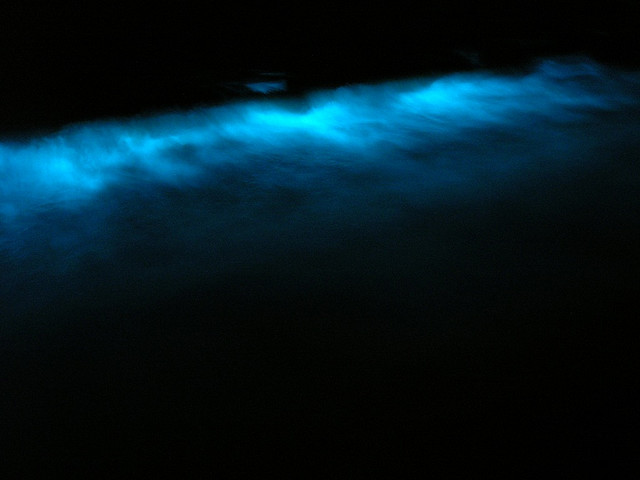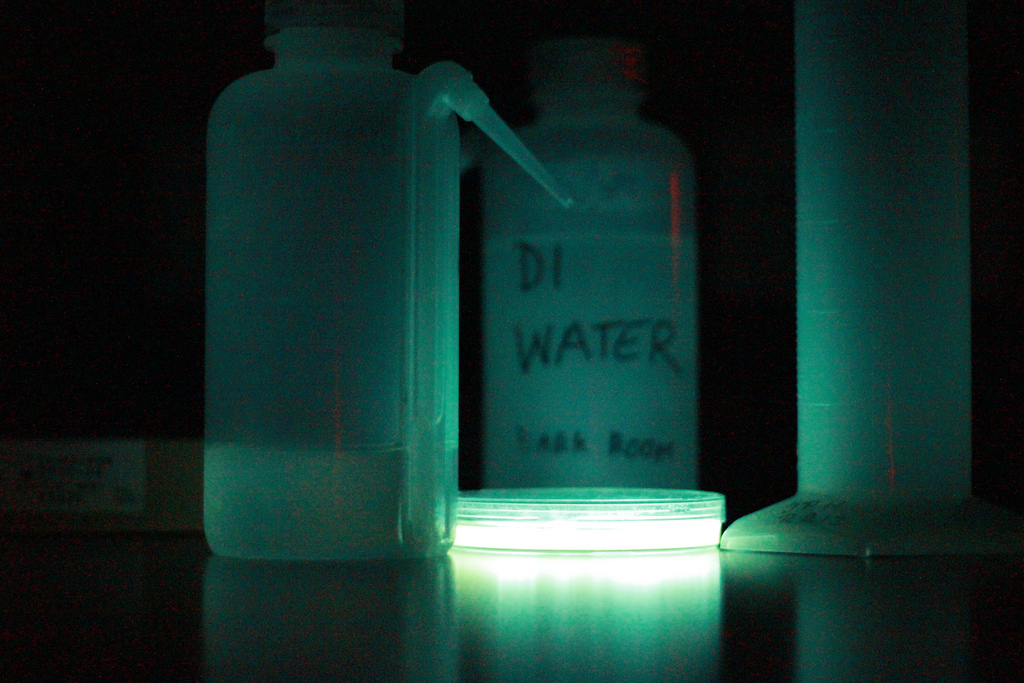Team:Cambridge/Bioluminescence/Bacterial Luciferases
From 2010.igem.org
(→Natural bioluminescent bacteria) |
|||
| Line 11: | Line 11: | ||
Bioluminescent bacterial species can differ markedly in their lifestyles. Vibrio Harveyi is a free living marine bacterium, while Xenorhabdus luminescens is a symbiont of terrestrial nematodes. | Bioluminescent bacterial species can differ markedly in their lifestyles. Vibrio Harveyi is a free living marine bacterium, while Xenorhabdus luminescens is a symbiont of terrestrial nematodes. | ||
| - | The light-generating chemical reactions in bioluminescent bacteria are catalysed by enzymes expressed from so-called lux genes. These genes encode not only the bacterial luciferase, but also the enzymes required for the synthesis of | + | The light-generating chemical reactions in bioluminescent bacteria are catalysed by enzymes expressed from so-called lux genes. These genes encode not only the bacterial luciferase, but also the enzymes required for the synthesis of fatty aldehydes, which are the substrates for the reaction. In the bacterial genome, the lux genes occur clustered in the [https://2010.igem.org/Team:Cambridge/Bioluminescence/Background lux operon]. |
==Our work== | ==Our work== | ||
Revision as of 22:19, 27 October 2010

Natural bioluminescent bacteria
Bioluminescence is a trait found in a number of marine bacteria. Some strains use their ability to emit light to form symbiotic relationships. A number of deep sea fish and squids have specialised light organs which harbour populations of bacteria that help their hosts by emitting light. One such example is the partnership between the Hawaiian Bobtail squid (Euprymna scolopes) and the bacterium Vibrio fischeri.
At night squid hunt high in the water column, attacking their prey from above. The squid uses the light produced by its symbionts to hide the shadow it casts when hunting in top waters in clear moonlit nights. An elaborate light sensing and shutter system adjusts the light output to the light that falls on the squid's back.
Bioluminescent bacterial species can differ markedly in their lifestyles. Vibrio Harveyi is a free living marine bacterium, while Xenorhabdus luminescens is a symbiont of terrestrial nematodes.
The light-generating chemical reactions in bioluminescent bacteria are catalysed by enzymes expressed from so-called lux genes. These genes encode not only the bacterial luciferase, but also the enzymes required for the synthesis of fatty aldehydes, which are the substrates for the reaction. In the bacterial genome, the lux genes occur clustered in the lux operon.
Our work
To complement 'Project Firefly', we wanted to use lux operons for the following two purposes:
- Emission of blue light to complete our spectrum of emission wavelengths.
- Substrate production within E. coli, avoiding the need for addition of external substrates, such as luciferin.
Bacterial lux operons encode five enzymes involved in the light-generating pathway.
- luxA and luxB form the luciferase of the system, which causes the emission of light when acting on the substrate tetradecanal.
- luxC, luxD and luxE are involved in the biosynthesis of tetradecanal from readily available substrates.
In nature, the lux genes appear to be repressed by the nucleoid protein, H-NS, and occur under quorum sensing control.
 "
"

